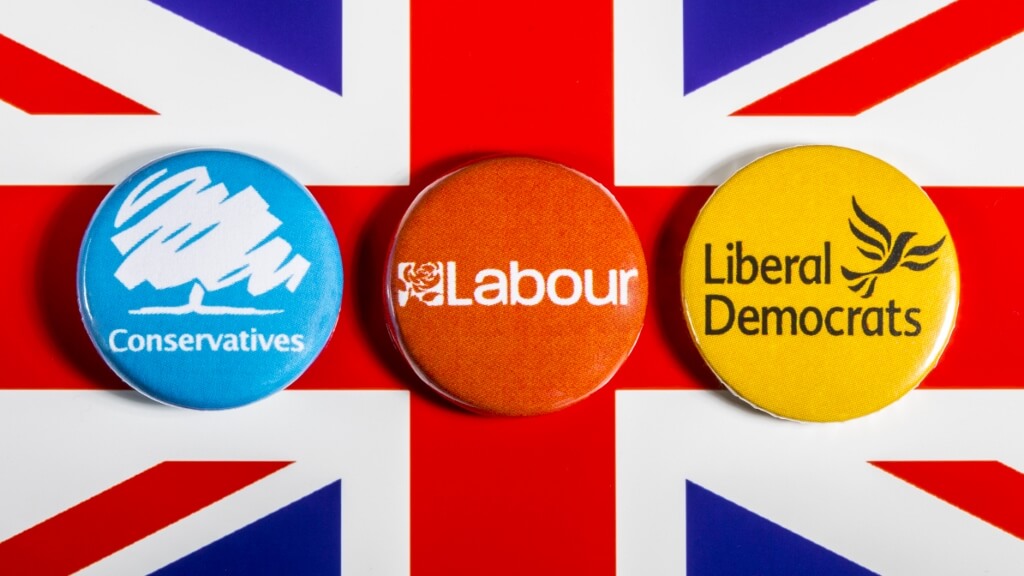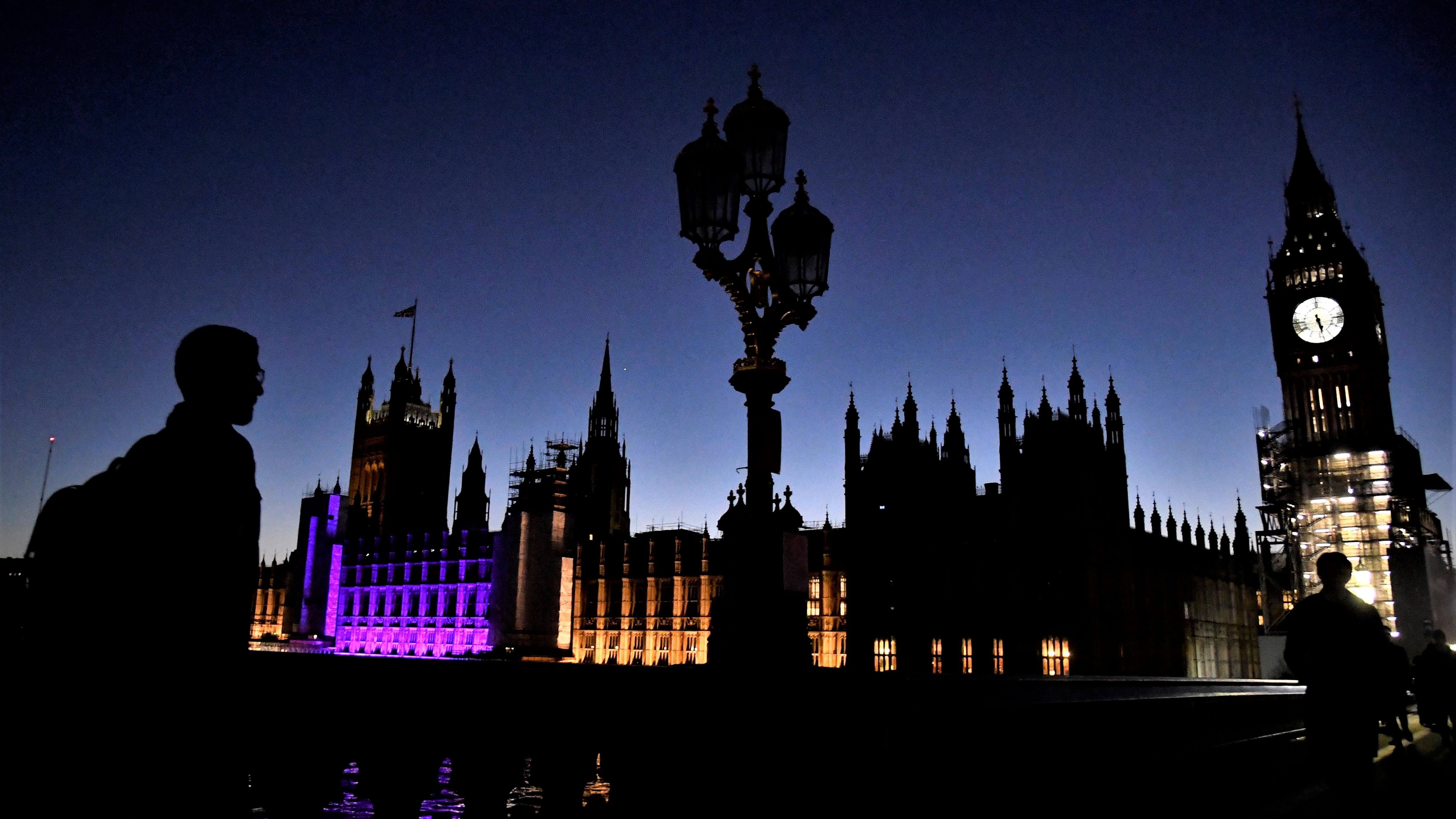The political parties are gunning for your vote, but they aren't the only ones who can enact change.
The Business Manifesto For Change
The political parties are gunning for your vote, but they aren't the only ones who can enact change.

With the General Election looming and the nation preparing for upheaval once more, it is hard to avoid to subject of change.
The parties have published their manifestos and many promises have been made to tackle the issues which are close to our hearts, such as health, the environment and our pockets.
But it isn’t just the responsibility of the government to create these changes, businesses and individuals have a duty too. We surveyed our agency to find what role they would like our business to play. This is our manifesto for how our business can help shape society for the better.
Create a coalition to end homelessness
Located in King’s Cross, we are struck by the juxtaposition between luxury flats springing up and the increasing number of homeless people sleeping in our streets. Over 4,000 people are estimated to sleep rough on any one night nationally and many more are in temporary accommodation.
The impact of homelessness on individuals may be obvious; not having a home can make it harder to find a job, stay healthy and maintain relationships. What is perhaps less obvious is the annual cost of homelessness estimated as £1bn a year.
The long-term solution of course is to build more affordable housing but this takes time and is politically fraught. In the meantime, we need to better meet the day to day needs of this group with more hostels, night shelters and move on accommodation, properly staffed and resourced to deal with homeless people’s complex needs.
Step forward the house builders to align and channel their piecemeal CSR efforts to make a meaningful contribution and work with the charities and local authorities to tackle the causes and support the homeless.
Make Smart Swaps for a healthier generation
According to McKinsey, obesity is a greater burden on the UK’s economy than armed violence, war and terrorism, costing the country nearly £47bn a year. It is a complex problem which requires action across individual and societal levels involving industry, national and local government and the voluntary sector. There is no single silver-bullet solution.
Public Health England’s Change4Life’s Be Food Smart App allows parents and children to visualise just how much salt, fat and sugar is lurking in their food by scanning the bar code.
Industry has an important role, not only in reformulating products that are high in salt, fat and sugar but in signposting the healthier choices.
Tesco’s current Helpful Little Swaps tactical campaign demonstrates that a helpful little swaps basket packed with healthier versions of the brands we love, is not only significantly lower in fat, sugar and salt but 15% cheaper than the regular basket.
But why can’t this be the default? An industry wide commitment from retailers and manufacturers to only promote the healthier option will go a long way to ensuring that our children grow up healthy.
Put litter in its place
Café life is part of our culture. We all enjoy our espresso, decaf latte and americano. But we never give a thought to what happens to the cups.
UK coffee drinkers use around 2.5 bn disposable cups per year – but only one in 1,000 is currently recycled and many end up littering our streets.
Hubbub has teamed up with coffee cup retailers and designers to reduce paper cup waste and save 20,000 cups from going to landfill by placing big coffee cup recyling bins in city centres and recycling them in into useful new products.
Other companies whose products and packaging are littered have an obligation to invest in innovative binfrastructure to make it easier to dispose of rubbish but also to join to help make littering culturally unacceptable.
Build a savings habit
The current savings ratio of just 3.3% is the lowest level since records began in 1963. Combined with a fall in real disposable income, this is a worrying sign for the health of household finances and the true strength of our economy.
Savings are key to our financial stability. This is particularly true for lower income families as they provide a buffer to allow unexpected costs to be managed without them having to rely on high interest lending.
Last year, the Money Advice Service reported the shocking fact that there are around 17 million working age adults with less than £100 set aside.
Everyone knows we should be saving more and spending less, but the decisions we make about money are complex: our emotions and motivations play a part but there’s also ingrained behavioural biases to be overcome.
When payday comes around it’s always tempting to overspend despite knowing we’ll then have to scrimp through the rest of the month (present bias); we underestimate how long and how easy it will be to save up (planning fallacy); and our old foe, procrastination, putting starting saving off until another day (procrastination).
Most mainstream financial products assume rational decision making. If we’re serious about changing the future savings landscape, financial services institutions need to evolve the design of savings offerings to start to tackle these barriers and enable people to take control of their own fortunes.
Improve employee attitudes towards their mental and physical health and wellbeing
Many organisations have health and wellbeing programmes, but, for too many, these are just a tick-box exercise. Even in businesses with well-established programmes, only 10 to 15 per cent of the workforce actively participates.
When you look at corporate annual reports, findings related to wellbeing invariably appear in the Corporate Social Responsibility chapter, rather than being viewed as a core part of the business strategy.
A more diligent approach from business, one that genuinely engages people in critical messages: gets them to move more, eat better, check themselves, combat stress and generally avoid sleepwalking into ill health could not only address sickness and absenteeism but also increase productivity and enhance workplace culture and competence.
There are 15 million people currently aged between 40 and 60 in the UK who can expect to live, on average, into their eighties. Someone, 50 today could be looking at another 25 years of working life ahead.
We have a once-in-a-generation opportunity to have a grown-up conversation about the way we live our adult lives. Business needs to start having that conversation with employees now. It won’t just help the workforce – it can also future-proof businesses’ health and that of the wider economy.
Jane Asscher is CEO and founding partner of 23red.
Thanks for signing up to Minutehack alerts.
Brilliant editorials heading your way soon.
Okay, Thanks!





